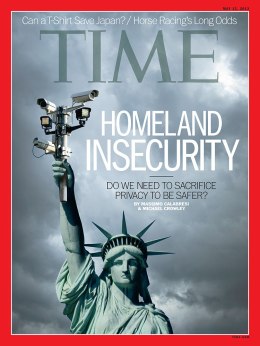
In 2011, Russia’s Federal Security Service contacted the FBI to warn that Tamerlan had turned toward radicalism. The alert was prompted by a phone conversation the Russians had recorded between Tamerlan and his mother, then living in the republic of Dagestan, in which they discussed jihad.
That’s when the FBI conducted its assessment of Tamerlan, tapping post-9/11 powers to investigate potential threats without opening a formal inquiry. The FBI ran Tamerlan’s name through a federal counterterrorism database of known Islamic-extremist websites, a senior law-enforcement official tells Time. The bureau also checked whether Tamerlan had called telephone numbers associated with known Islamic extremists, the official says. The FBI took 10 different investigative steps, the senior law-enforcement official says, including interviewing Tamerlan, but after finding no sign of terrorism, the bureau closed its case file, concluding he was not a danger.
(MORE: Five Questions in Congress About the Boston Bombings)
In January 2012, Tamerlan took his notorious trip to Dagestan, where his parents live in the capital, Makhachkala. His precise activities there are unclear. His father says Tamerlan visited a conservative mosque popular among the republic’s Islamist fighters. “I would be lying if I told you that everyone who gathers there is an angel,” Magomedtagir Temirchiev, a local attendee of the mosque, tells Time. U.S. officials are now investigating whether Tsarnaev met with local militants, including a Russian-Canadian boxer and convert to Islam named William Plotnikov, who was killed in a firefight with Russian forces on July 14, 2012. Tamerlan flew back to the U.S. two days later.
Tamerlan’s overseas trip set off no alarms at the FBI. When he landed at New York City’s JFK airport, the Department of Homeland Security notified Boston’s Joint Terrorism Task Force. An agent there reviewed the automated alert but took no further action.
(PHOTOS: Marathon Carnage: Explosions in Boston)
Now back home in Cambridge, Tamerlan was an occasional visitor to the Islamic Society of Boston mosque, an ornately decorated, low-slung building on a residential street. Here, the burgeoning radical could not stomach the mosque’s message of relative moderation. When an imam sermonized at a weekly prayer session in mid-November that it’s appropriate for Muslims to celebrate such secular American holidays as July 4 and Thanksgiving, Tsarnaev stood up and declared that Islam forbids it, an argument he continued with the preacher after his sermon ended. Two months later, on the Friday before Martin Luther King Jr. Day, Tamerlan had his big confrontation with the imam over the approaching holiday. After being warned by mosque leaders to stop interrupting or stop attending, Tamerlan chose the former.
(PHOTOS: Joy and Relief in Boston After Bombing Suspect’s Arrest)
Picking a fight with your imam is hardly illegal—in fact, it’s protected by the First Amendment. Perhaps even more telling was Tamerlan’s Internet activity. In August 2012 he created a YouTube account, and in subsequent months he posted several videos promoting militant Islam. One of them, listed under the header “Terrorists,” featured militants with automatic weapons. Another, titled “The Emergence of Prophecy: The Black Flags from Khorasan,” celebrated the defeat of infidels by jihadi fighters. Still another featured a radical Islamic cleric who attacks the Harry Potter series as evil and argues that the books promote “the drinking of unicorn blood and magic.” Looking back now, it is tempting to conclude that an alert federal agent might have spotted a dangerous pattern here.
Not-So-Big Brother
What to make of Tamerlan’s radicalization, however, and whether it should have been monitored and acted upon, became the subject of angry debate in Washington within days of his death. The failure to detect the brothers’ plot seemed to some like a replay of 9/11, when communication failures between U.S. intelligence and law-enforcement services blew a chance to stop the attacks. “There still seem to be serious problems with sharing information, including critical investigative information,” said GOP Senator Susan Collins, a member of the Senate Intelligence Committee.

